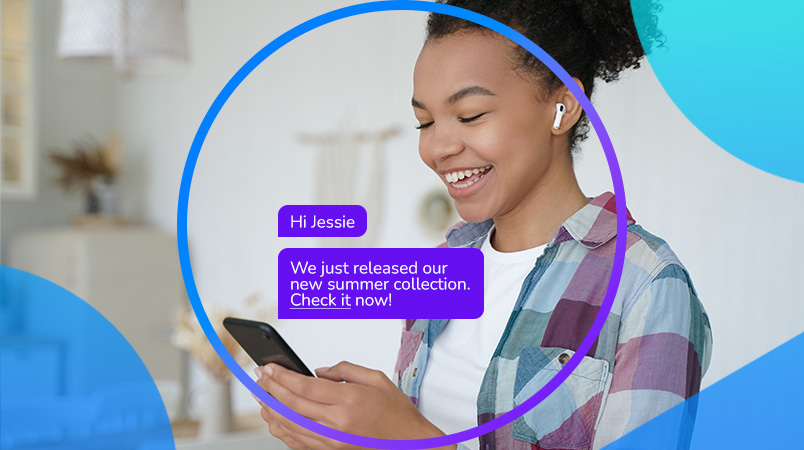Summary: The History & Law Behind Electronic Signatures
Under the Federal Law, both The United States Electronic Signatures in Global and National Commerce (ESIGN) Act, and the Uniform Electronic Transactions Act (UETA) allow for electronic signatures to become *recognized as valid under the U.S. law (*only if and when specific criteria pertaining to the laws are met)....
What is the UETA Act?
UETA, a precursor to the ESIGN Act, was introduced in 1999 and has been adopted by 47 U.S. states, as well as the District of Columbia and the U.S. Virgin Islands.
What is the ESIGN Act?
The ESIGN Act is a federal law that was then passed in 2000 following the UETA Act. Under the ESIGN Act, legal recognition of electronic signatures and records are granted if all parties to a contract choose to use electronic documents and are willing to sign them electronically.
The Legal Landscape of The UETA & ESIGN Acts:
UETA and the ESIGN Act have solidified the legal landscape for the use of electronic records and electronic signatures in commerce by confirming that electronic records and signatures carry the same weight and have the same legal effect as traditional paper documents and wet ink signatures.*
Both laws provide the following:
No contract, signature, or record shall be denied legal effect solely because it is in electronic form
A contract relating to a transaction cannot be denied legal effect solely because an electronic signature or record was used in its formation
*The law for electronic signatures in most countries spell out certain types of documents or document categories for which electronic signatures are not appropriate. Each customer should work with legal counsel to identify categories of exclusion pertaining to each relevant country, but common categories of exclusion are wills and trusts, powers of attorney, and declarations given under oath.
Why UETA & The ESIGN Acts Matter:
Both UETA & the ESIGN Acts now serve as a mechanism to protect both the sender and recipient of the electronic document and signatures. These acts guarantee the integrity of an electronic document and authenticate the author of the electronic document. The electronic signature cannot be canceled or reproduced on another document, if attempted, it is therefore unfalsifiable.
Since 2016, the electronic signature has been one of the world's most innovative "process" evolving most rapidly from its traditional method to today's digital solutions. It is becoming increasingly indispensable in various commercial exchanges in banking, insurance, retail, human resources, real estate, and legal verticals and sectors and continues to grow!
The Top 4 Business Challenges & Problems that Electronic Signatures Solve
Answered by CM.com Expert, and an Industry-Leader in Mobile Business Operations & Communications:
1 - Saves More Time & Creates More Efficiency
Compared to the traditional "wet" signature, e-signatures save a lot of time as they allow for you to instantly send and distribute a document that requires a signature to one or more parties involved...digitally and in just a few simple clicks.
In many sectors, such as banking and insurance, the electronic signature makes it possible to conclude sales outside of business hours or to subscribe to online offers 24/7. An electronic contract will always be ready to be signed in seconds, which also shortens the processing time of the files. A customer or a partner can sign a document via any device (mobile phone, tablet, PC, etc.) without having to go back to the office or pick up a scanner to be able to send it. This approach facilitates the customer relationship while improving the rate of transformation.
In the human resources sector, e-signing makes it possible to sign a work contract quickly and remotely when necessary.
2 - Eliminates & Lowers Costs
According to a recent study conducted by CM.com, the electronic signature would reduce operating costs of € 68,600 (~$75,000) a year if it used via a Web application or € 75,500 (~$83,100) if used through API integration (*based on 500 documents signed per month and two signers per document). Not to mention, the costs associated with paper management of contracts and documents to need to be signed (and countersigned) is more expensive compared to e-signatures (where there is no need for costs associated with travel, shipping, paper, and the obvious...opportunity costs.).
3 - Easily Track Progress of Your Files & Signatures in Real-Time
Electronic Signatures make it possible to follow the stage in which the document is being signed, allowing files, as well as the contracts to be tracked for progress in real-time. Thanks to a digital certificate, it is particularly possible to trace each modification or action performed on the original document.
The tracking tool integrated with most electronic signature solutions can also trace the progress of signatures and send an automatic reminder to recipients who have not signed the document. This tool serves as an indicator that informs everyone involved where each document is in the signature loop.
4 - Ensure Secure Access & Identity of The Signer
It is possible to choose a level of security adapted to specific needs and to set up one of the three degrees of reliability of the electronic signature. According to the eIDAS regulation, the use of electronic signature provides three levels of security: standard (a checkbox), advanced (the identity of the signatory is linked to the signature) and qualified (each signatory must first identify with a trusted service provider).
Indeed, the mere fact of filling a box, putting your name or "agreement" on a website is considered an electronic signature. The great advantage of the standard signature is that it remains very accessible to the signatory. Nevertheless, this type of signature is easy to challenge. On the other hand, advanced and qualified e-signatures have a higher legal value and can very well apply to very high-value and high-risk agreements, for example the transfer of ownership of real estate. These categories of signatures make it possible to guarantee in a certain way the identity of the signatory while being in conformity with the European regulation on the protection of the data (RGPD), which aims at a greater transparency and with the responsibility of the economic actors.
According to eIDAS (2016), all EU member states are required to follow the same e-signature standards. It should be noted that in some countries, such as Belgium and Estonia, citizens have identity cards with electronic signature certificates, but this is not the case in France. It is possible to create a signature certificate and a signature via any device thanks to electronic signature solutions in SaaS mode
To summarize, the digitalization of services and processes is helping to accelerate trade in France and Europe in many sectors. On a daily basis, the electronic signature facilitates interactions between companies, individuals and public organizations. Being able to choose the level of security adapted to the needs of companies also allows to rethink and modernize the way information and documents are accessible, managed and secured within organizations.









